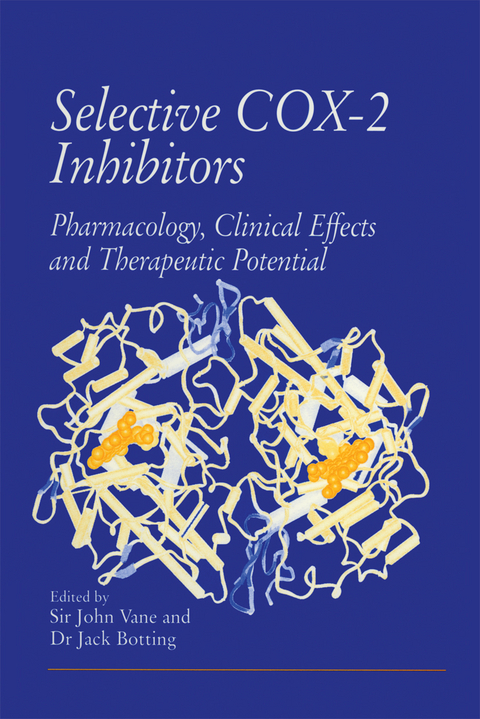
Selective COX-2 Inhibitors
Springer (Verlag)
978-94-010-6041-7 (ISBN)
Sir John Vane is the Director General at the William Harvey Research Institute, an independent charitable foundation within Queen Mary and Westfield College of the University of London, UK. Sir John Vane shared the Nobel Prize in Physiology or Medicine in 1982 for his discoveries of the mechanism of action of aspirin and of prostacyclin, as well as his work on other prostanoids. Jack Botting is Consultant at the William Harvey Research Institute, an independent charitable foundation within Queen Mary and Westfield College of the University of London, UK.
List of Contributors.- Preface.- 1 Mechanism of action of anti-inflammatory drugs: an overview.- 2 The structure of human COX-2 and selective inhibitors.- 3 Differential inhibition of COX-1 and COX-2 by NSAIDS: a summary of results obtained using various test systems.- 4 COX-2 in brain and retina: role in neuronal survival.- 5 COX-2 and apoptosis: NSAIDs as effectors of programmed cell death.- 6 Inhibition of intestinal tumorigenesis via selective inhibition of COX-2.- 7 Cyclooxygenase enzymes in human vascular disease.- 8 Gastrointestinal effects of NSAIDs.- 9 Renal side effects of NSAIDs: role of COX-1 and COX-2.- 10 Aspirin-induced asthma and cyclooxygenases.- 11 New classification of aspirin-like drugs.- 12 New highly selective COX-2 inhibitors.- 13 Specific COX-2 inhibitors: from bench to bedside.- 14 Meloxicam: selective COX-2 inhibition in clinical practice.
| Zusatzinfo | IX, 150 p. |
|---|---|
| Verlagsort | Dordrecht |
| Sprache | englisch |
| Maße | 160 x 240 mm |
| Themenwelt | Medizin / Pharmazie ► Medizinische Fachgebiete ► Pharmakologie / Pharmakotherapie |
| Medizin / Pharmazie ► Pharmazie | |
| ISBN-10 | 94-010-6041-X / 940106041X |
| ISBN-13 | 978-94-010-6041-7 / 9789401060417 |
| Zustand | Neuware |
| Haben Sie eine Frage zum Produkt? |
aus dem Bereich


